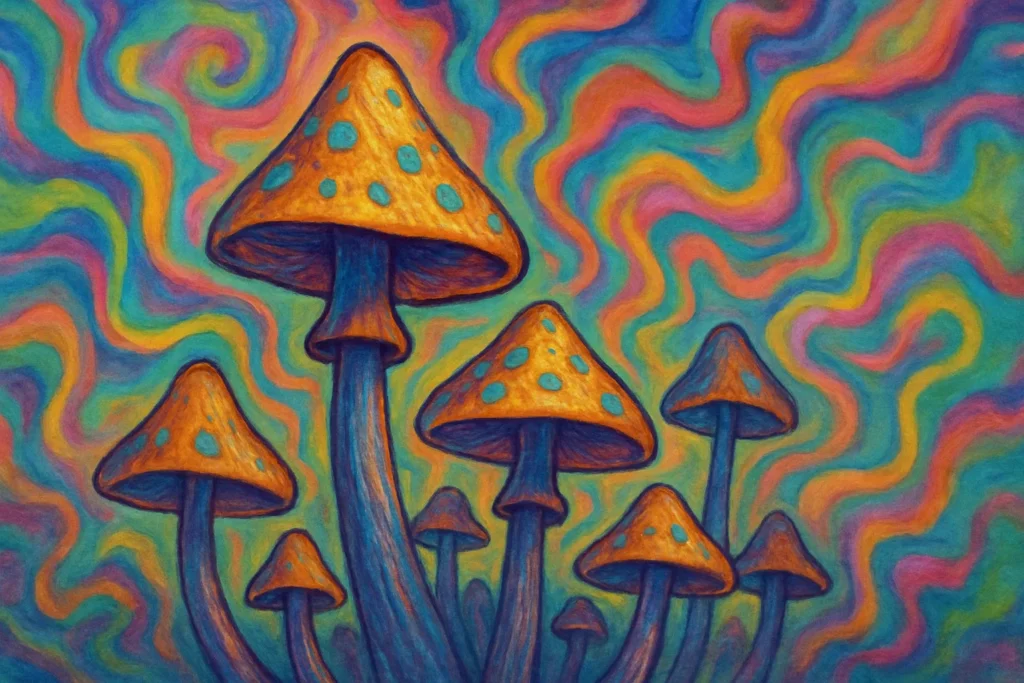Can Psilocybin Slow Aging? New Research Suggests It Might
Recent studies have unveiled exciting potential in the world of psychedelics, particularly psilocybin, the active compound found in magic mushrooms. A groundbreaking study published in npj Aging reveals that this psychedelics could play a significant role in decelerating the aging process.
A New Hope for Aging
Mice subjected to psilocybin treatment exhibited remarkable improvements: bald patches healed, and fur color darkened, suggesting rejuvenation at a cellular level. After months of treatment, these aging mice not only showed improved appearances but also experienced a 60% increase in survival rates compared to their untreated counterparts.
This study marks a pivotal point, providing the first experimental evidence that psilocybin extends cellular lifespan in mammals. As researchers at Baylor College of Medicine and Emory University pointed out, “Our findings suggest that psilocybin has potent effects on the entire body, including antiaging properties.”
Understanding the Mechanism: How Psilocybin Works
-
Cellular Lifespan Extension: In laboratory tests, treated human cells displayed up to 57% longer lifespan than those untreated. Key markers of aging, such as DNA deterioration, were significantly reduced.
-
Telomere Preservation: The study found that telomeres—protective caps on chromosomes that typically shorten with aging—remained intact in the treated cells. This preservation is crucial, as short telomeres are linked to age-related diseases.
- SIRT1 Protein Enhancement: Psilocybin increased the expression of SIRT1, a protein associated with longevity. This indicates a potential connection between psilocybin and cellular health.
The Benefits Observed in Living Mice
To relate these findings to real-life applications, researchers administered psilocybin to female mice aged 19 months (comparable to 60 years in humans). Key outcomes included:
- Survival Rates: 80% of psilocybin-treated mice survived after ten months versus just 50% in the control group.
- Visible Improvements: The treated mice showed fur regrowth in balding areas and a reduction in gray hair.
Dr. Kosuke Kato, a study co-author, expressed excitement about the implications: “Even late-life intervention can lead to dramatic impacts.”
Mechanisms at Play
While the precise reasons for psilocybin’s effects on the body remain unclear, its interactions with serotonin receptors—particularly 5-HT2A—play a significant role. These receptors are present in various body systems and may facilitate:
- Reduced Oxidative Stress: Lower oxidative stress can lead to healthier cells and slower aging.
- Enhanced DNA Repair: Psilocybin may boost the body’s ability to fix damaged DNA.
Implications for Overall Health
The findings align with previous research that suggests occasional psychedelic use correlates with lower rates of obesity, diabetes, and heart diseases in adults. However, while these correlations are promising, direct causation has yet to be clearly established.
Exploratory Paths Ahead
While this research is groundbreaking, it raises essential questions:
- Can these effects be replicated in humans?
- What are the risks associated with long-term use?
- Would lower, non-hallucinogenic doses yield similar benefits?
Current regulations classify psilocybin as a Schedule I substance in the United States. However, the outlook is changing, with the FDA recognizing psilocybin’s potential for treating depression and approving numerous clinical trials.
Conclusion: A New Era in Aging Research
The prospect that psilocybin might not only enhance mental health but also slow biological aging presents an intriguing frontier in medical science. As more research emerges, we may uncover how this psychedelic compound can reshape our understanding of health and longevity.
By shedding light on these mechanisms, scientists hope to encourage comprehensive studies into psilocybin’s systemic effects and pave the way for new pharmacotherapies against aging.


